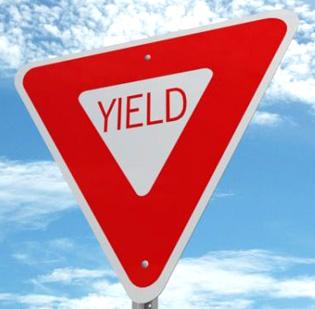
Many have made the claim that allocating 20% yields to HBD is completely unsustainable. Those who make this claim pronounce it as fact with the confidence of a con man. And yet, they back it up with zero evidence or mathematical proof. It "sounds right" to them so they just carry on making the assumption without putting a single ounce of effort into the hypothesis.
This is actually somewhat of a new development.
No one was espousing this concept before UST crashed to zero. Then as soon as it did people started conflating UST with HBD and making this blind claim as if they are the same thing.
If you can't explain the yield, you are the yield.
This statement is even more relevant today now that FTX has collapsed to zero and we find out that like a dozen other exchanges were foolishly parking value there. It should be obvious by now that allowing a centralized exchange to farm yield on your behalf is not an acceptable outcome. It's actually much worse than just leaving your crypto on the exchange, because exchanges that farm yield have a financial incentive to gamble with client funds, making themselves insolvent in a volatile market.
So let's explain the HBD yield.
First of all, to say that 20% is "unsustainable" automatically implies that the 20% is a static unchanging yield. Right of the bat, we see that this is not the case and witnesses can change the number to whatever they want (in the same exact way that it was changed to 20%). Now onto where the yield actually comes from.
HBD is a promise that Hive will loosely maintain the peg to $1 using HBD >> Hive conversions. If ever the market value of HBD is less than $1 liquidity-bots/users can destroy HBD to receive the appropriate amount of Hive 3.5 days later. It is in this way that we think of HBD as the debt of Hive.
The interesting thing about debt is that you never have to pay it back if there is widespread demand to hold it. Hive developers are continuing to grind and build atop HBD, increasing its value, and thus, its demand. Because HBD can not increase in token value due to the peg, it can only increase in market cap. This creates a virtuous loop by siphoning that market cap into Hive through the Hive >> HBD conversions which destroy Hive and create HBD "out of thin air".
So the first question we have to ask ourselves is a pretty simple one: Can Hive developers create enough solid tech that would (on average) increase the demand for HBD at least 20% year over year? If the answer is yes, then 20% HBD yields are sustainable just due to the fact that developers are building on Hive.
However, there are several other ways to pay for the 20% yield in addition to this, and all these variables stack on top of each other to make it even more sustainable. The ultimate fall-back is the HBD >> Hive conversion mechanic.
So lets say development on Hive is slow or inefficient during the time period we are analyzing. HBD demand trades flat during this time. There's about 9M HBD in circulation right now. If we assume that all of it is earning 20% yield (it's not but I don't have the actual number) that means that after 12 months Hive would owe 1.8M HBD back out to the savings account holders. Is that unsustainable?
Again, we have to ask where the money comes from. If HBD hasn't gained any demand within that 12 month time frame, the $1.8M comes from Hive's market cap in the form of HBD >> Hive conversions. Looking at the current market cap of Hive, it's over $150M even at these rock-bottom levels. It's safe to say that the 20% yields we are allocating to HBD are less than 1% of Hive's total market cap (which is where the money comes from). To say that 20% yields on HDB is unsustainable is to also claim that Hive can't afford to lose 1% of it's market cap per year.
So the same people that claim 20% HBD is unsustainable are also the ones who claim that 1% of our total market cap is a lot. Ask these people why they are involved in crypto. Is it so they can make a 5% gain per year? 10%? 15%? 20%? No, the same people who think 1% is a lot are the ones who want to make 50%-100% ROI year over year investing in crypto. The entire thought process is hypocritical on a mathematical level.

Third prong (inflation/devaluation)
And yes, there is one more way Hive can pay for the 20% yield, and that is via USD devaluation (inflation). For example, if USD had a consistent pattern of galloping inflation at 20% or stagflation at 20%, that alone would pay the cost of our yield. If HBD is the debt that Hive owes back to the holders, then Hive owes back less when the debt is worth less. 20% inflation of USD offsets 20% HBD yields.
Of course my actual thoughts on inflation are contrary to what most are saying at the moment, but if we assume that inflation is indeed happening then this logic is sound. Basically when the FED stops crushing demand for debt we are probably going to see this play out.
https://hivebuzz.me/ranking
And again, I don't have the numbers on hand, but if we add up the top 25 HBD holders in the savings accounts it sums to less than 2M HBD. Thus, the numbers I'm working with here are significantly lower (and more sustainable) than I'm even making them out to be.

The actual threat explained:
The real threat of stable-coin yield is debt-ratio. This is as true for HBD as it was for UST. UST did not have a haircut in place to prevent the death spiral, and so it crashed to zero within days. What happened there is that billions of dollars of institutional money entered what was clearly a Ponzi scheme on a technical level. We've really learned that there's no such thing as "smart money" in crypto. The tech is simply too complicated to the point that even basic scams go unnoticed by VCs and the like.
Once these billions of dollars entered TERRA LUNA for the sole purpose of farming yield (with no other utility) UST acted as leverage to pump LUNA with LUNA >> UST burn conversions, just like Hive >> HBD. How do we avoid the same fate as LUNA?
Well, first of all, our debt-cap is set to 30%. If too much HBD gets converted HBD will break it's peg to the downside. This does not inspire trust for debt holders, but it is clearly preferable to everything imploding to zero.
Second of all, even with 20% yields and Hive being at rock-bottom valuations, our debt ratio is still below 6%, which is pretty damn impressive considering the circumstances. We need to be much more worried if that number is higher; especially if the debt ratio begins to increase as Hive increases in market cap.
The natural state of an algo coin is that debt-ratio will increase during the bear market as users convert their debt back into the governance coin and sell. If the debt-ratio increases during the BULL MARKET (like LUNA/UST did) this is a gigantic red-flag. It's a really bad sign that the network is getting overleveraged and that Hive is getting pumped by outside entities farming the 20% yield on HBD with no other utility (unless a big HBD utility app just dropped). It is in this case that I would implore witnesses to aggressively lower the APR to lower demand of HBD and bring the debt ratio back into alignment.
On the flip side, there is a real possibility that Hive will one day be forced to increase the haircut above 30%. It all depends on Hive's stable demand for debt. If many apps were utilizing HBD, demand for debt would go up. If the baseline demand were to increase from where it is now (3%-6%) to something much higher (15%-20%) we would effectively be forced to increase the debt ratio due to the peg breaking to the upside during bursts of high demand.
Of course, this is something that can't be measured within a bull market. Rock-bottom support for the debt ratio can only be measured during a crypto winter. The indicator we'd be looking for would be a high debt-ratio on HBD but far fewer conversions than were expected. More users would have to be holding HBD than converting them and selling out. These are all things we need to be paying attention to so we can maneuver around the dynamic demand of the market and create elasticity to match liquidity. This is the kind of strategy that will inevitably create a more stable ecosystem that people can trust.
Conclusion
The false logic behind the idea that 20% HBD yields are unsustainable are two prong. It begins at the collapse of the TERRA LUNA ecosystem and it ends at the assumption that 20% is a really good deal that everyone is participating in. Neither of these things are true. HBD is completely different than UST and the debt ratio is low. Very few users are taking the 20% APR deal even though it is a very good one. Hive does not have institutional investors like UST did. This is what created the overleverage and fostered the giga-short that ended it all.
In summary, there are 3 ways to pay the yield:
- Legitimate and permanent demand to hold the debt over time
- HBD >> Hive conversions (currently less than a 1% cost)
- USD inflation/devaluation
Anyone who blindly says the system isn't sustainable (even though the witnesses can change the yield at any moment) has clearly not done the math or any analysis on the matter. It's a knee jerk reaction that stems from bear market pain. Keep forging those diamonds, gentlemen. They only shine under pressure.
Posted Using LeoFinance Beta
